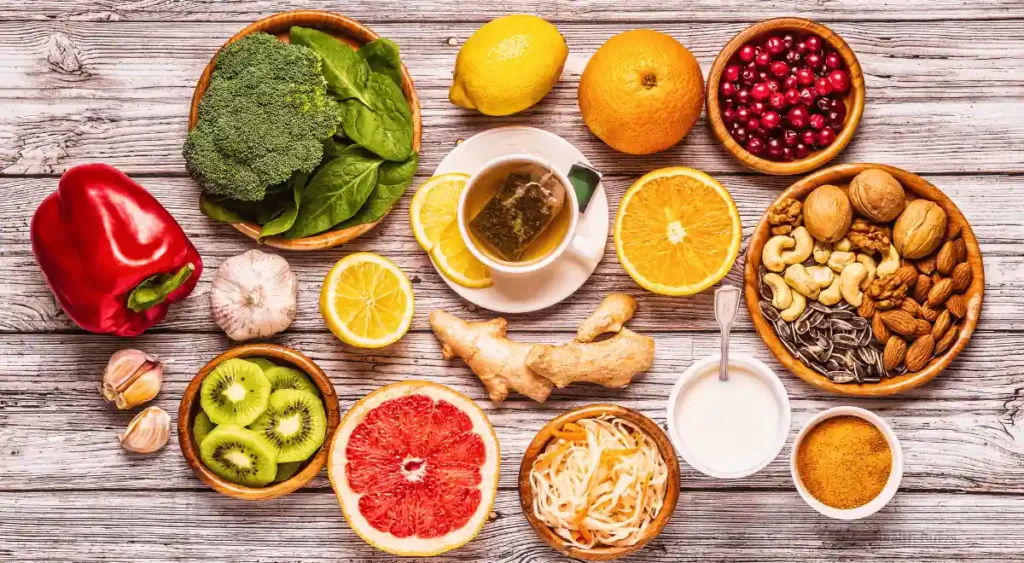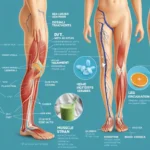Supercharge Your Metabolism. Our expert tips are your stepping stones to success. ‘Metabolism’ is a term used a lot in today’s raging health culture, frequently in connection to the key to weight control and optimal physical health. But what is metabolism precisely, and why is it so important to our general well-being? Reaching your health and fitness objectives can be made easier by knowing the workings of your metabolic rate and the significant impact of your food patterns.
Supercharge Your Metabolism
Metabolism is a collection of chemical processes in your body that change food into the energy you use daily. It is your body’s engine room, digesting calories and producing power. Thus, whether you’re running a marathon or just lounging on the couch, your metabolic rate regulates how rapidly this energy exchange occurs and how quickly you burn calories.
Metabolism isn’t a one-size-fits-all thing; several factors, including genetics, age, gender, and muscle mass, influence it. However, given these differences, one thing remains consistent: the power of lifestyle choices, notably food, influences your metabolic rate.
What to eat to boost your metabolism?
Foods that Boost Metabolism

Feeding your body certain types of food can kickstart your internal power plant. Here’s a tasteful guide on what plates to pick:
- Lean Proteins: Chicken breast, turkey, tofu, and legumes are not just building blocks for muscles—they require your body to expend more energy to digest, temporarily raising your metabolic rate.
- Whole Grains: Oats, brown rice, and quinoa keep your metabolism on its toes, thanks to their fiber content that demands more energy to break down.
- Spicy Foods: Capsaicin, a compound in chili peppers, can slightly boost your metabolic rate by generating heat and promoting fat burning.
- Green Tea: Rich in antioxidants, green tea supports fat oxidation and can rev up your metabolism, making it a soothing yet powerful beverage choice.
The impact of different foods on metabolism
One specific area of nutrition research that explains how our systems manage different kinds of nutrients is the effect of varied diets on metabolism. More energy is needed to digest, absorb, and remove lean proteins—like those in chicken breast and tofu—than fats and carbohydrates. This phenomenon, called the thermal effect of food (TEF), momentarily increases metabolic rate. Furthermore, accelerating metabolism are whole grains and foods high in fiber, such as brown rice and oats, which require more energy from the body to break down.

But capsaicin—a component of spicy foods—has a little but discernible impact on metabolism. Foods high in capsaicin produce heat that can burn more calories by inducing a thermogenic reaction. Furthermore, research indicates that the antioxidants in green tea—catechins in particular—increase fat oxidation, which raises metabolic rate. Understanding these consequences will enable us to select food carefully, looking for the best metabolic health and nutritional value.
Common Misconceptions about Metabolism
One prevailing myth is that metabolism is entirely genetic and unchangeable. The metabolism rate is mainly affected by genetics, but diet and exercise can have a significant impact. Another misconception is the belief that a fast metabolism is always better. In reality, an overly rapid metabolism can lead to difficulties in gaining and maintaining weight, which can concern those looking to build muscle.
Meal skipping can also increase metabolic rate and help with weight loss. However, this method often causes harm because, over time, it can cause muscle loss and a drop in metabolism. Contrary to popular belief, eating small, frequent meals does not necessarily “stoke the metabolic fire.” Regarding metabolic rate, the frequency of meals is less important than the diet’s overall composition and quality.
Lastly, it’s a common belief that burning fat supplements may significantly boost metabolism. However, most of these drugs can have adverse side effects and provide limited benefits. A balanced diet high in whole foods, joint exercise, and enough sleep are the best and most long-term methods of increasing metabolism.
Tips for supercharge your metabolism

Eating right is one way to increase metabolism; another is to live a healthy lifestyle. These tested methods will boost your metabolism and improve your body’s ability to burn energy:
- Stay Hydrated: Your body depends on you drinking enough water. Some studies show that drinking water may quickly speed up your metabolism. At the very least, drink eight glasses of water daily and think about having one first thing in the morning.
- Increase Muscle Mass: When you’re at rest, muscles burn more calories than fat because their metabolism is more busy. Strength training can increase metabolism and build muscle in your daily exercise routine.
- Get Enough Sleep: Not getting enough sleep has been connected to weight gain by raising hunger and lowering metabolic rate. Sleep between seven and nine hours every night to maintain a healthy metabolism.
- Eat Regularly: While the effect of meal frequency on metabolism is debatable, ensuring you eat at regular intervals can prevent metabolism dips. If you skip meals, your body may enter protection mode and slow down metabolic activities.
- Incorporate High-Intensity Workouts: High-Intensity Interval Training (HIIT) can elevate your metabolism for hours after exercise. This effect, known as the afterburn, results in more calories burned even at rest.
- Stay Active Throughout the Day: Choose small activities. One option is to walk or stand instead of sitting, which can provide a significant metabolic boost over time.
A functioning metabolism is essential to good health, and by making simple changes to your daily routine, you may be able to achieve just that.
Eating Habits for a Healthy Metabolism
It’s about when and how much you eat, as much as what you consume. Regular, well-balanced meals can spread out your metabolic fire or be overdone. To maintain your metabolism working at its best, pay attention to portion control, eat often during the day, and include a variety of meals high in nutrients.
Lifestyle Changes to Support Metabolism

A fast metabolism is not friends with a sedentary lifestyle. Physical activity added to your regular schedule maintains a high metabolism. It doesn’t have to be going to the gym daily; any heart-pumping activity, like a brisk walk or bike ride, will significantly increase metabolic rate.
Myth Busting
Quick remedies to supercharge your metabolism or “speed up your metabolism” overnight are all over the internet. Alert: there are no magic answers. Increasing your metabolism takes time and combines exercise with healthy diets. Furthermore, although drinking water and keeping hydrated help with several metabolic functions, its direct impact on increasing metabolism is sometimes understated.
Conclusion- Supercharge Your Metabolism
Supporting your metabolism combines an active lifestyle and well-informed food choices, not some mysterious science. Staying active and including items that increase metabolism in your diet lay a solid basis for good health, energy, and weight control. Recall that the objective is to effect long-lasting adjustments for which you will be grateful.
Make one small change today, such as walking in the evening, drinking an extra glass of green tea, or eating a spicy side dish. These little, progressive actions bring about long-lasting changes in health.
Are you keen to learn how consuming well will maximize your health and fitness? Share this post to talk about metabolic health today with friends and coworkers. You’ll thank your body (and metabolism).
Hi there! I’m content writer and blogger. With over two years of experience, I’ve shared my passion for writing across various platforms. I firmly believe in the transformative power of words and look forward to sharing this journey with you. Enjoy my work!










